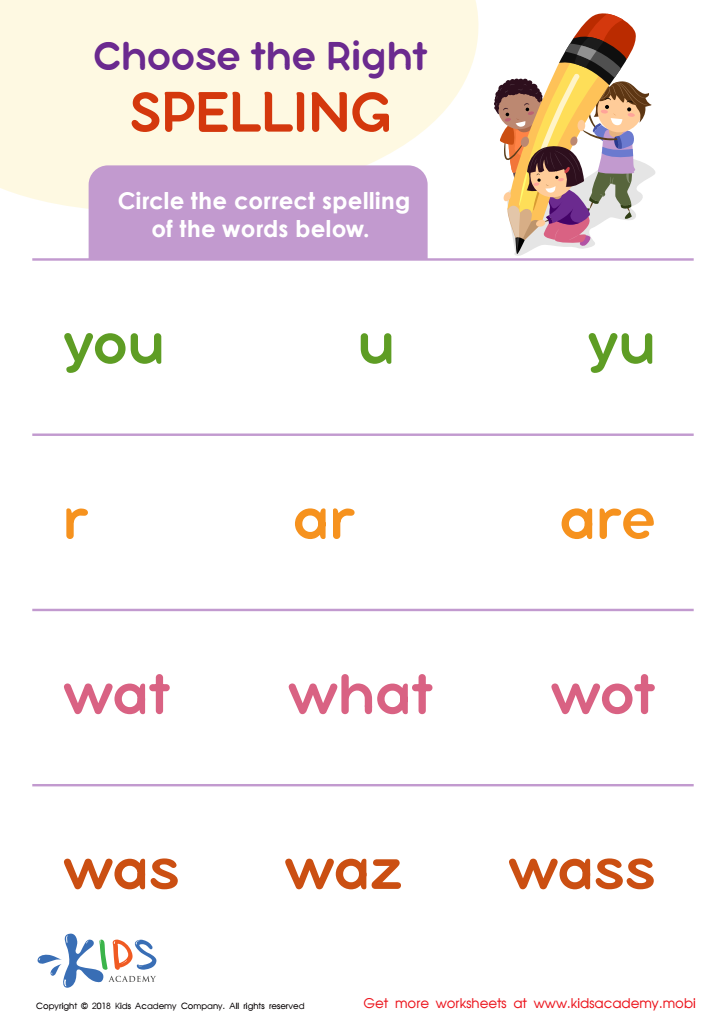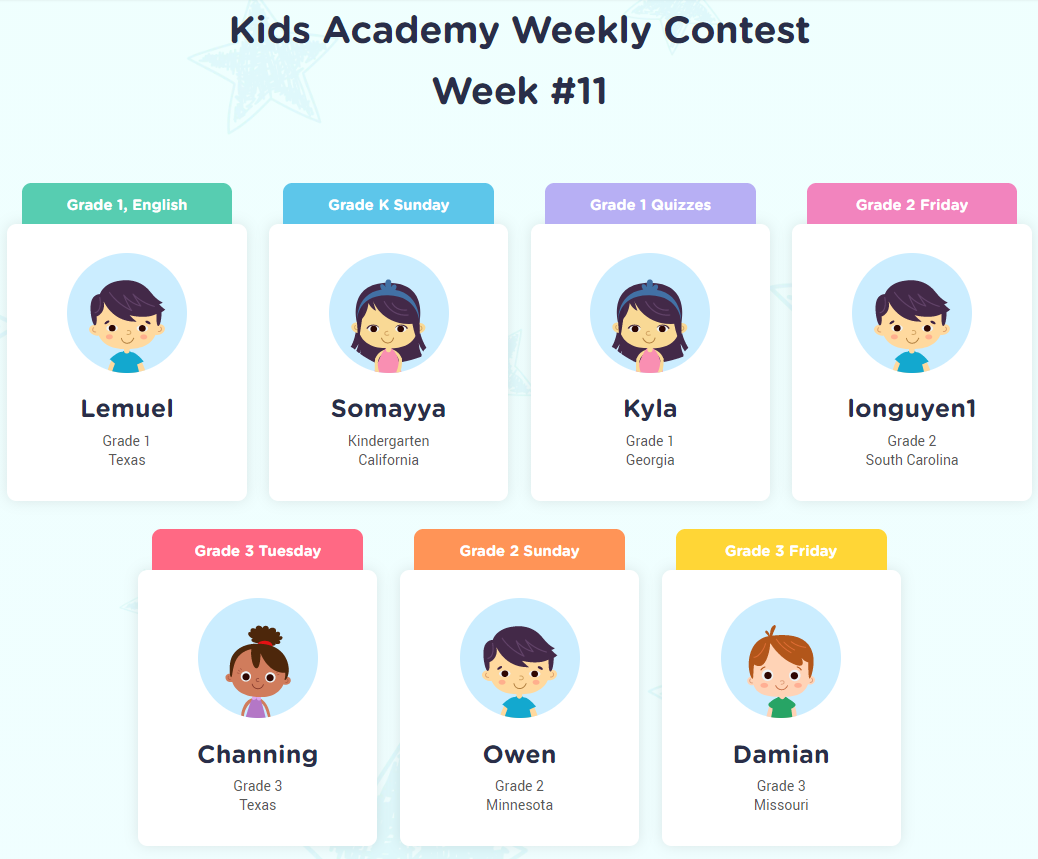English language practice Worksheets for Kids
2 filtered results
-
From - To


Rhyming Words Rhyming Worksheet


Choose the Right Spelling Worksheet
Question/Answer
How to train the English language practice skill in Kindergarten students learning about Alphabet?
To train English language practice skills in Kindergarten students learning about the Alphabet, employ interactive methods such as singing alphabet songs, playing alphabet-related games, using flashcards with letters and images, engaging in letter tracing and writing activities, and reading alphabet books together. These hands-on and engaging activities enhance letter recognition, phonics, and early reading skills in a fun, stimulating manner.
Why is the English language practice skill important for Kindergarten students?
English language practice is crucial for Kindergarten students as it lays the foundational skills for reading, writing, and communication. Early exposure enhances vocabulary, grammar understanding, and literacy, which are vital for academic success and effective interaction. It also helps in developing critical thinking and creativity, preparing children for future learning and social opportunities.
How does the mastery of the English language practice skill affect a student's performance at an early age?
Mastery of English language skills at an early age significantly enhances a student's academic performance. It improves reading comprehension, writing ability, and oral communication skills, making it easier for students to grasp and excel in other subjects. Early mastery also boosts confidence, critical thinking, and the capacity for creative expression, laying a strong foundation for lifelong learning and success.
 Assign to the classroom
Assign to the classroom












